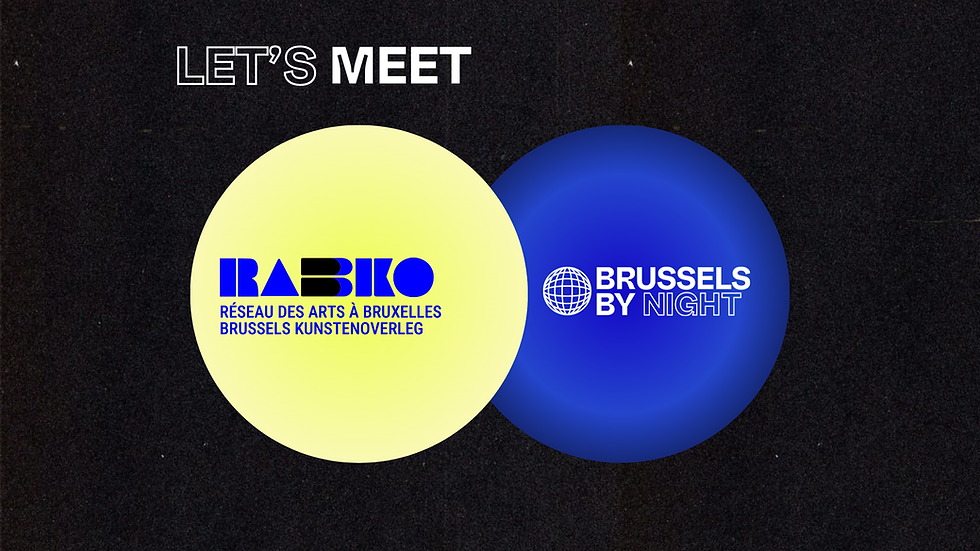Talking about Care Teams: BBN harm reduction manager interviewed by BRUZZ
- Brussels By Night
- 10 avr. 2024
- 2 min de lecture
Dernière mise à jour : 2 juin
Pauline Draps exchanged recently with Bruzz to talk about the existing measures to fight sexual and gender based violence in nightlife, and why care teams is not the only solution.

In October 2021, the #balancetonbar movement brought to light thousands of testimonies from victims of sexist and sexual violence. Since then, BBN, with the support of the City of Brussels and Equal.brussels, has been working to improve safety at festive events. Has going out become safer since then? Pauline Draps gives her insight in a Bruzz article, alongside Maïté Meuùs.
Ensuring safety in nightlife venues poses distinct challenges, particularly in bars. Despite efforts by associations like Brussels By Night, supported by the City of Brussels, to provide training and establish protocols, bars face unique difficulties due to their open-door policy and varied clientele.
While clubs may find it easier to control entry and manage their audience, bars experience higher foot traffic and turnover, making consistent safety measures harder to implement. Moreover, not all nightlife venues are willing to invest equally in preventive measures. There is also the high staff turnover, as well as financial difficulties in the sector. "If bars and clubs are already struggling to survive financially, harm reduction is certainly not a priority."
BBN has also introduced in 2023 the 'We Care' project, which allows promoters and venues to call in a Care Team on their events in Brussels. Their role is to fight discriminatory and transgressive behaviour, step in when necessary,support victims and introduce the audience to the event values. However, it should not be the only solution.
"Care Teams contribute to the public's sense of safety, but clubs and bars often rely on them as if they are the only solution. But a Care Team, in the absence of other measures, is more of sticking plaster for a broken arm."
Funding challenges hinder the sustainability of projects, underscoring the need for ongoing support from the government to the non-profit sector.
While aftercare services for victims have seen progress, preventive measures lag behind in most municipalities. If public discourse is highly important in prompting venues and promoters to adopt proactive measures, there is a need for a sustained and structural approach to foster a culture of inclusivity and collective accountability. "It is an ecosystem, in which not only the public, but also the artists, staff and venue owners play a role"
In conclusion, ensuring safety in nightlife requires a multifaceted approach that combines training, structural support, and ongoing dialogue. By working together, stakeholders can create a safer and more inclusive nightlife environment for all.
Find the whole article (in dutch) here to read Maité Meuùs’ insights





Commentaires